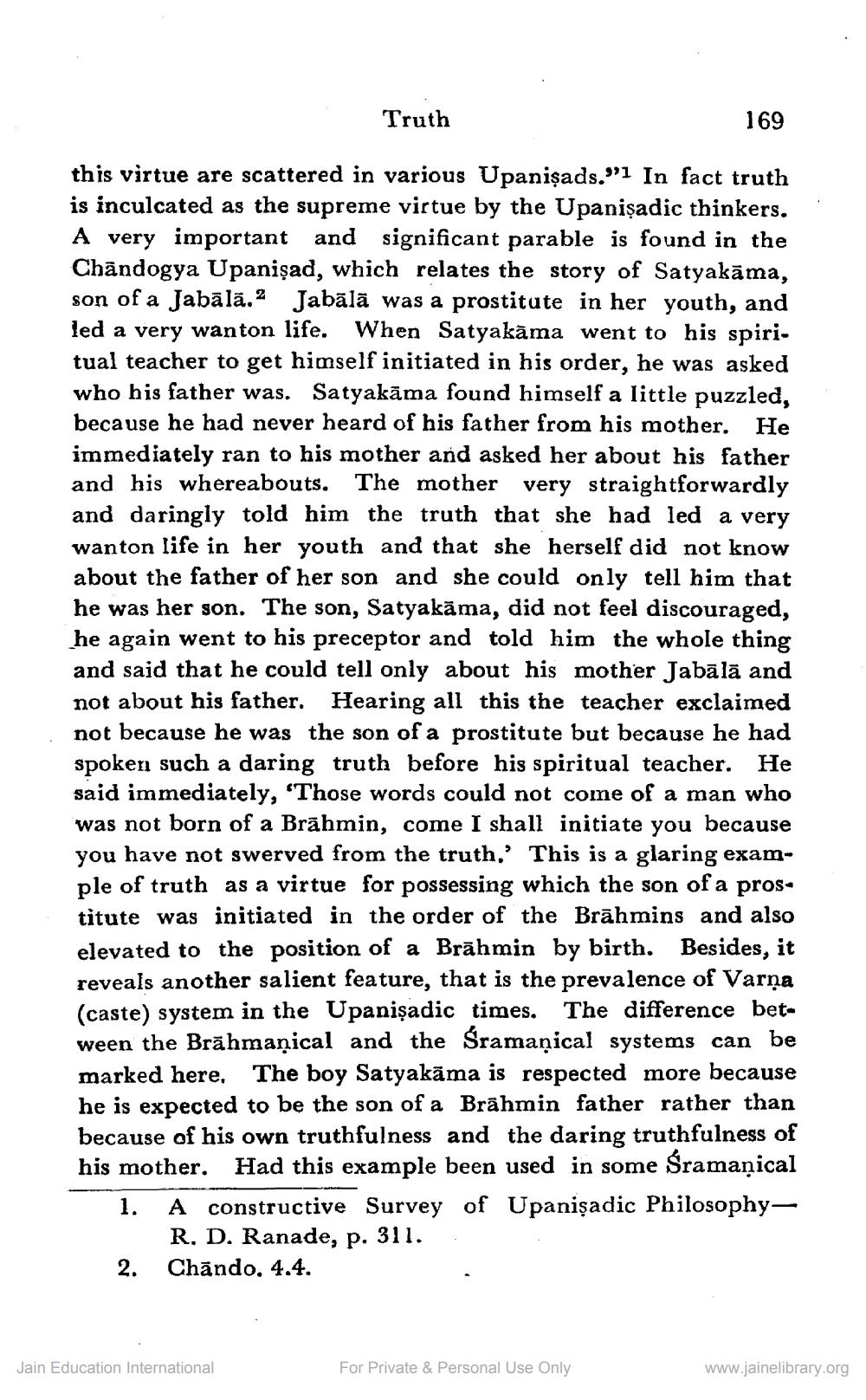________________
Truth
169
this virtue are scattered in various Upanişads."1 In fact truth is inculcated as the supreme virtue by the Upanişadic thinkers. A very important and significant parable is found in the Chāndogya Upanişad, which relates the story of Satyakāma, son of a Jabālā.2 Jabālā was a prostitute in her youth, and led a very wanton life. When Satyakāma went to his spiri. tual teacher to get himself initiated in his order, he was asked who his father was. Satyakāma found himself a little puzzled, because he had never heard of his father from his mother. He immediately ran to his mother and asked her about his father and his whereabouts. The mother very straightforwardly and daringly told him the truth that she had led a very wanton life in her youth and that she herself did not know about the father of her son and she could only tell him that he was her son. The son, Satyakāma, did not feel discouraged, he again went to his preceptor and told him the whole thing and said that he could tell only about his mother Jabālā and not about his father. Hearing all this the teacher exclaimed not because he was the son of a prostitute but because he had spoken such a daring truth before his spiritual teacher. He said immediately, "Those words could not come of a man who was not born of a Brāhmin, come I shall initiate you because you have not swerved from the truth.' This is a glaring example of truth as a virtue for possessing which the son of a prostitute was initiated in the order of the Brāhmins and also elevated to the position of a Brāhmin by birth. Besides, it reveals another salient feature, that is the prevalence of Varna (caste) system in the Upanişadic times. The difference between the Brāhmaṇical and the Sramaņical systems can be marked here. The boy Satyakāma is respected more because he is expected to be the son of a Brāhmin father rather than because of his own truthfulness and the daring truthfulness of his mother. Had this example been used in some Śramaņical 1. A constructive Survey of Upanișadic Philosophy
R. D. Ranade, p. 311.. 2. Chándo. 4.4.
Jain Education International
For Private & Personal Use Only
www.jainelibrary.org




